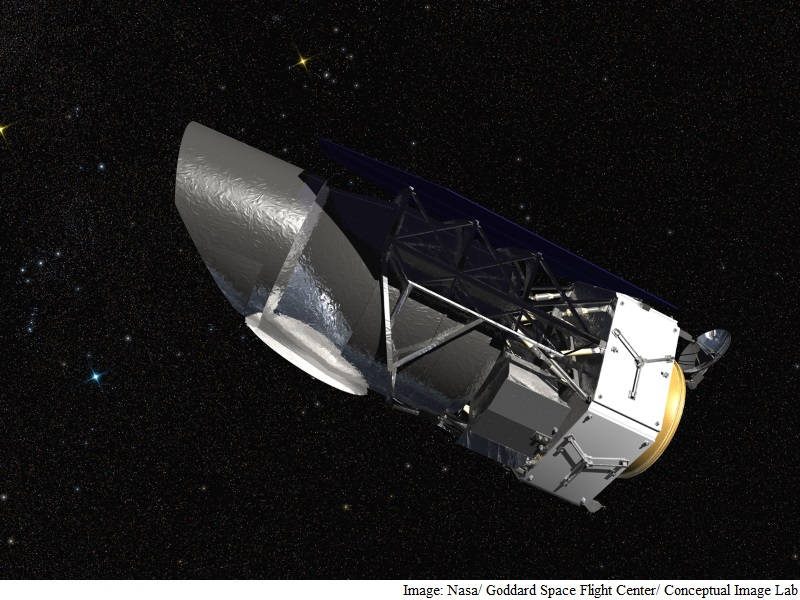American space agency, NASA, in a bid to unravel the secrets of the universe, has announced that it will build a new, wider telescope which will have a view 100 times bigger than that of the Hubble Space Telescope.
The new telescope is named the Wide Field Infrared Survey Telescope (WFIRST), and is slated to be launched in the mid-2020s.
WFIRST is NASA’s next major astrophysics observatory, following the launch of the James Webb Space Telescope in 2018.
The observatory will help unravel the secrets of dark energy and dark matter and explore the evolution of the universe.
It will also help discover new worlds outside our solar system and advance the search for worlds that could be suitable for life.
The WFIRST will begin operations after travelling to a gravitational balance point known as “Earth-Sun L2” which is located about one million miles from Earth in a direction directly opposite the Sun.
The observatory will survey large regions of the sky in near-infrared light to answer fundamental questions about the structure and evolution of the universe.
It will carry a Wide Field Instrument for surveys and also a Coronagraph Instrument designed to block the glare of individual stars and reveal the faint light of planets orbiting around them.
By blocking the light of the host star, the Coronagraph Instrument will enable detailed measurements of the chemical makeup of planetary atmospheres.
Comparing these data across many worlds will allow scientists to better understand the origin and physics of these atmospheres, and search for chemical signs of environments suitable for life.
“WFIRST has the potential to open our eyes to the wonders of the universe, much the same way Hubble has,”
said John Grunsfeld, associate administrator of NASA’s Science Mission Directorate in Washington, DC.
“This mission uniquely combines the ability to discover and characterize planets beyond our own solar system with the sensitivity and optics to look wide and deep into the universe in a quest to unravel the mysteries of dark energy and dark matter,” he explained in a statement.



